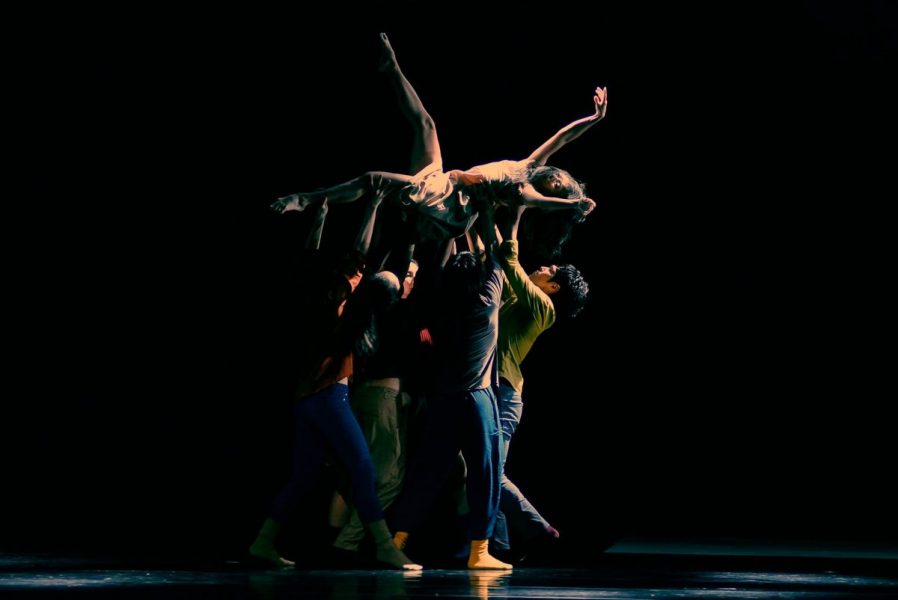Resident Island Dance Theatre’s Lost in Grey, is presented as part of Dance Base’s well-programmed (as always) Fringe selection. It is also one of a number of interesting shows that comprise the Fringe’s Taiwan Season, which has been bringing a diverse assortment of very worthwhile Taiwanese work to Edinburgh since 2014.
Lost in Grey, choreographed by RIDT founder Chang Chung-an, looks at the complexities surrounding society’s attitude towards mental health and how society reacts towards those who find it difficult to cope with life’s pressures. Given its theme, it is not surprising that the dancing is intense and moving, society’s relationship to those with mental health problems portrayed as being ambiguous, their reactions sometimes ostracising, but also suggests human connection is still possible.
The dancers certainly have both the energy and the emotional capacity to bring this off. As an ensemble they work very well together, and really engage the audience, drawing them in. The choreography is often agitated, almost disturbing, but while its various sections are very successful, they do not knit together to create an entirely directed whole. The momentum of the individual moments doesn’t bubble up to the surface, and thus the form of the work is under-articulated.
Occasionally, Lost in Grey’s depiction of mental health problems edges too near the clichéd—the mad woman with the back-combed hair and staring eyes—although clearly the company has to have some theatrical licence here. However, the often very ordinary face of those who live with these difficulties is absent.
This is a difficult and distressing subject to tackle, and despite some caveats, RIDT handle it very well. Lost in Grey is a thought-provoking work, highly pertinent to the age we live in, where society continues to be hopeful that issues surrounding our mental health can simply remain neglected.
